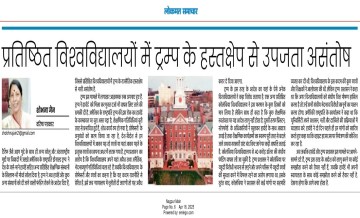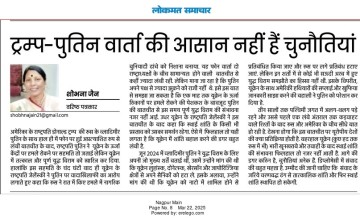Intriguing Transformation : Unveiling the Evolution from Kerala to Keralam

11 Aug, (VNI) The Kerala Legislative Assembly has unanimously approved a resolution for the alteration of the state's nomenclature, advocating for the adoption of the term "Keralam" within the Constitution and all administrative documents.
This motion, set in motion by Chief Minister Pinarayi Vijayan, garnered unopposed support, with the opposing faction, led by the Congress, refraining from suggesting any modifications.
The resolution underscores that the Malayalam designation for our state is "Keralam." The establishment of states rooted in linguistic affiliations transpired on November 1, 1956, concurrently celebrated as Kerala's establishment day. The pursuit of a unified Kerala, encompassing all Malayalam-speaking communities, has been ardently upheld since the era of the freedom movement. However, the initial Schedule of the Constitution designates our state as "Kerala." In unison, this Assembly appeals to the Central Government to promptly activate measures delineated in Article 3 of the Constitution, thereby effecting a transition from the present "Kerala" to the proposed "Keralam."
Several suppositions have arisen pertaining to the genesis of the appellation 'Kerala.' The most ancient inscribed record referencing Kerala is Emperor Asoka's Rock Edict II, dating back to 257 BC. This inscription alludes to the local ruler as "Keralaputra" (Sanskrit for "offspring of Kerala"), as well as "offspring of Chera," signifying the Chera dynasty.
Concerning 'Keralam,' scholars speculate that it might have emanated from 'Cheram.' Dr. Herman Gundert, a German scholar recognized for penning the inaugural Malayalam-English lexicon, discerned that the term 'keram' denotes the Canarese (Kannada) variant of cheram. He delineated Keralam as Cheram, delineating the expanse spanning between Gokarnam and Kanyakumari. The term's etymology might be traced to the root 'cher,' implying cohesion. This import is manifest in the composite term 'Cheralam,' where "alam" signifies region or terrain.
The populace conversing in Malayalam had been governed by assorted monarchs and princely states within the vicinity. The 1920s witnessed the rise of the Aikya (unified) Kerala movement, catalyzing the plea for a distinctive state for Malayalam-speaking individuals. Its objective encompassed the amalgamation of Malabar, Kochi, and Travancore into a unified domain.
The Keralites, united by language, shared cultural conventions, and woven together by a shared chronicle, rituals, and traditions, drew inspiration from the freedom movement to advocate for amalgamation and convergence.
The integration of princely states constituted a pivotal stride towards the formation of the state of Kerala following Independence. The amalgamation of Travancore and Kochi on July 1, 1949, heralded the genesis of the Travancore-Cochin State.
During the deliberations on state reorganization based on linguistic demarcations, the State Reorganization Commission, led by Syed Fazl Ali, recommended the establishment of the Kerala state. The commission advocated the inclusion of the Malabar district and the Kasargod taluk within the Malayalam-speaking populace's state. Conversely, it recommended the exclusion of the four southern taluks of Travancore—Tovala, Agastheeswaram, Kalkulam, and Vilayankode—along with certain segments of Shenkottai (currently part of Tamil Nadu).
Kerala materialized as an independent entity on November 1, 1956. In Malayalam, the designation for the state was "Keralam," while in English, it retained the appellation Kerala.
Distinguishing itself from the renaming of cities, renaming a state necessitates endorsement from the Ministry of Home Affairs (MHA) at the central level. Consequently, an amendment to the Constitution becomes imperative for such a transformation.
Commencing with a proposal originating from the state administration, the Ministry of Home Affairs takes the reins, conferring consent post receipt of No Objection Certificates (NOCs) from diverse entities, including the Ministry of Railways, Intelligence Bureau, Department of Posts, Survey of India, and the Registrar General of India.
Upon endorsement of the proposal, the resolution is introduced as a legislative Bill, subject to parliamentary deliberation. Following legislative approval, the transition is legally ratified, cementing the change in the state's designation.
No comments found. Be a first comment here!









